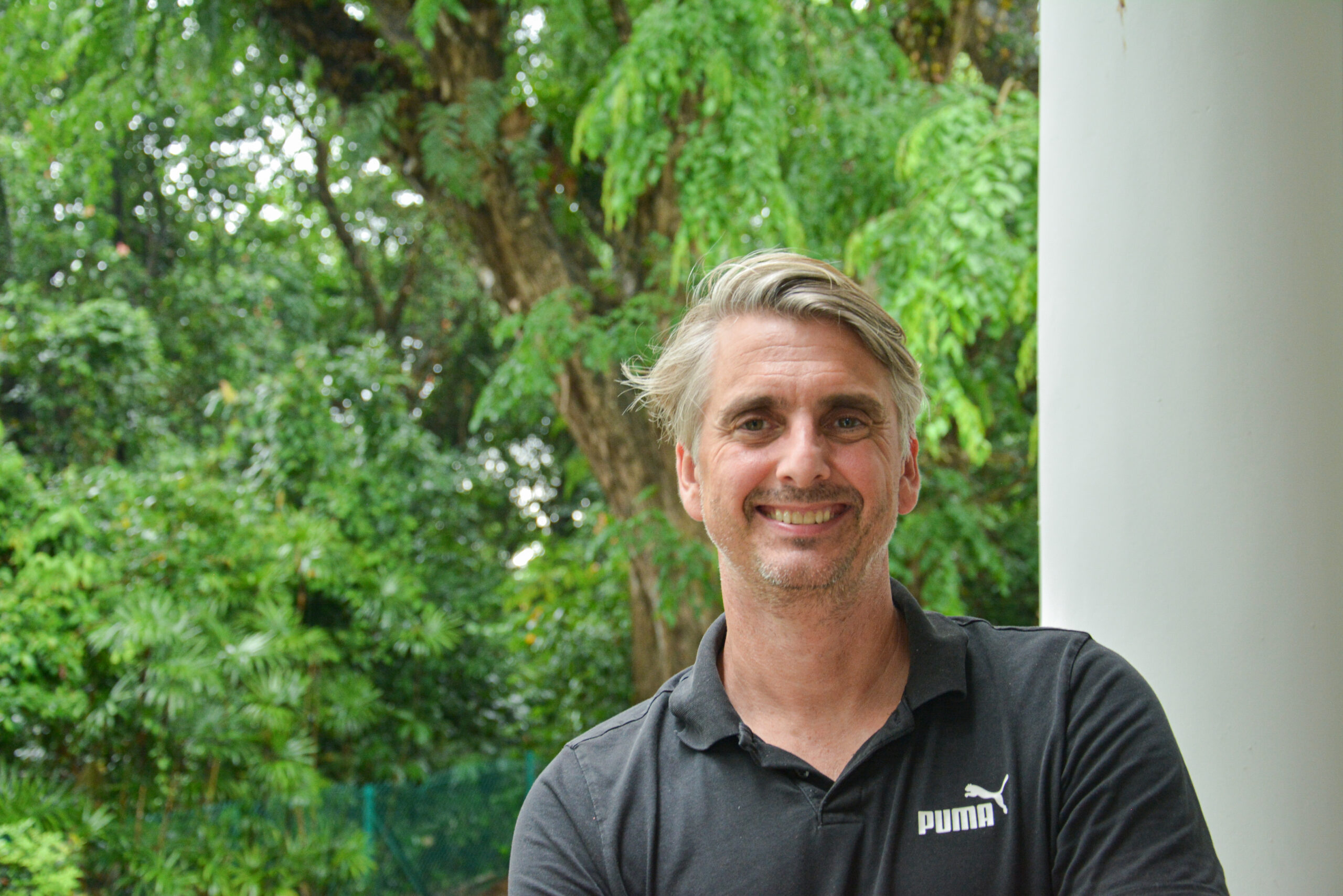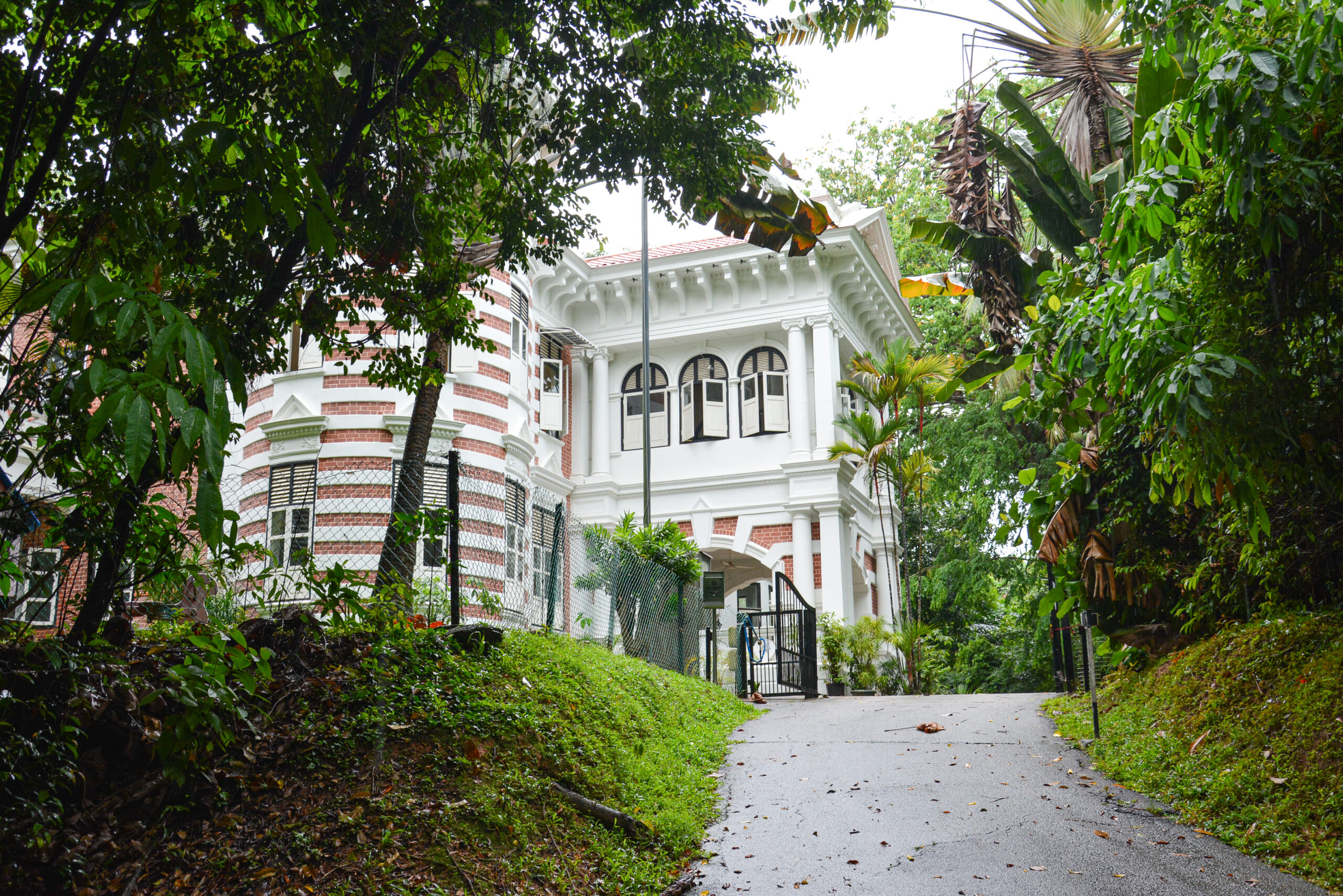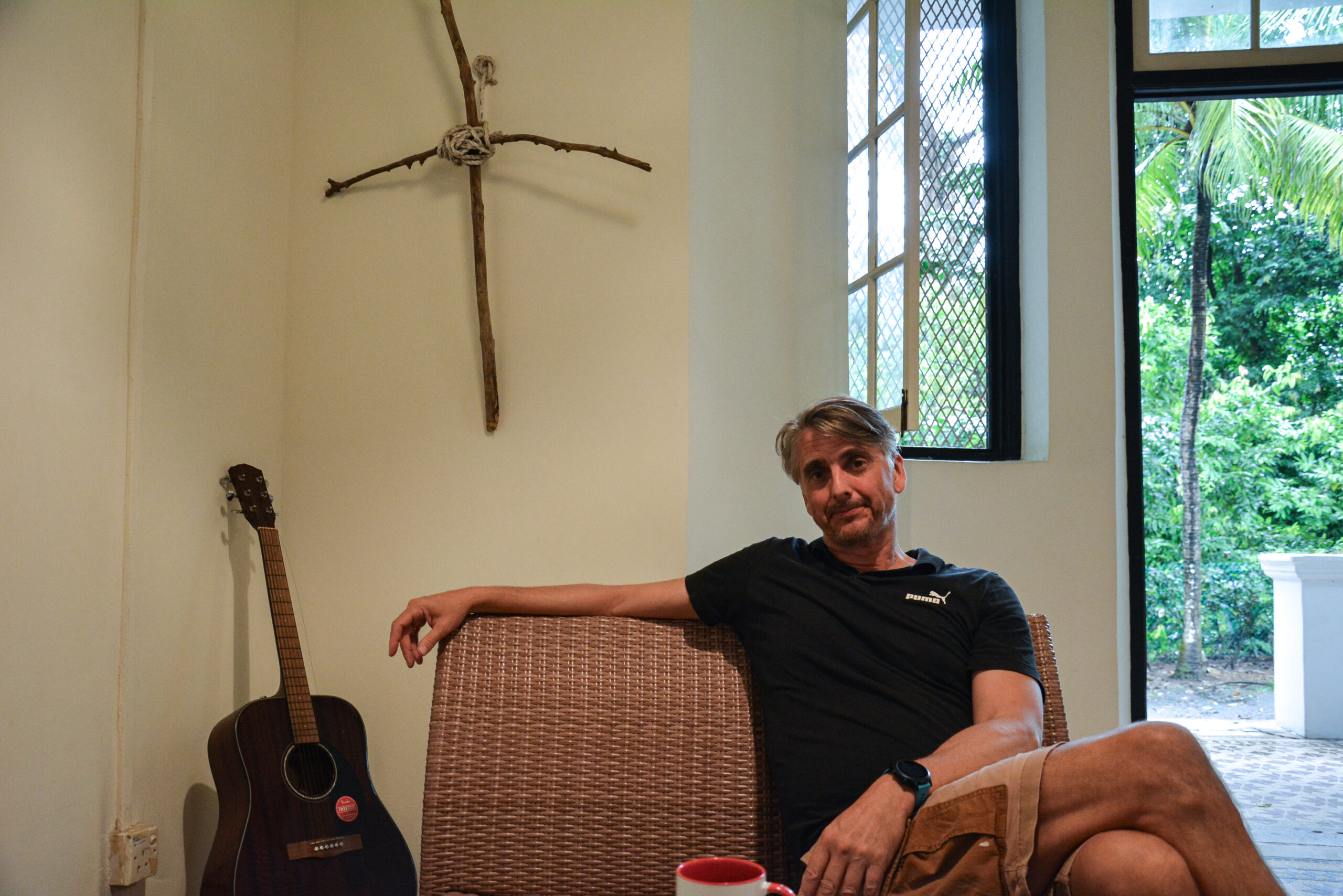
Carl Bjarkam is pastor at the Danish Seamen’s Church in Singapore. He has been in Singapore for 4 years, and he loves his job. However, he acknowledges that the position has changed a lot over the years.
The Danish Seamen’s Church in Singapore is an old building, which seems fitting as it hosts such an old organization as The Danish Seamen’s Church. The pastor Carl Bjarkam imagines that the tradition of priests involved with the sailors goes back to the missionary days in the mid 19 century.
The church isn’t cluttered and there is almost an echo as I sit in front of Carl Bjarkam to talk about the relevance of his position. He sips his coffee as he starts to tell me why he believe his presence is important in Singapore and especially on the Danish flaged ships arriving at Singapore main port just a few kilometers away in the harbor.
An unexpected opportunity
Carl Bjarkam is a Danish priest, but he has lived in many different countries while working as one. He has lived in France and Dubai before he arrived in Singapore.
He has a degree in Theology, but had no experience in the maritime world, when he accepted the position as both local Danish priest for the Danish community in Singapore and Port Chaplain – priest for the seafarers.
“It just sounded very interesting. I had never lived in this part of the world before, and I was fascinated by the history of the Danish Seamen’s Church in Singapore.’
“Living abroad gives you a different perspective on the world,” Carl Bjarkam states. “However,” he continues: “I also believe it is quite common that people who live abroad sometimes need that place that feels like back home”.
This is essentially what the Danish Seamen’s Church is supposed to provide for the Danes abroad. A little piece of home, where you can speak Danish, sing the Danish songs, and celebrate the Danish rituals. However, it began as a solution to a whole different kind of problem.
A practical beginning of a movement
“In the beginning the Seamen’s Church was designed as a place where seafarer could go, so they wouldn’t blow all of their salary on gambling and brothels when they came to shore,” Carl Bjarkam explains while laughing.
However, in all seriousness Carl Bjarkam continues to explain how it was obvious that there was a very specific need for the churches back in the day. Not only to keep the minds and money of the sailors from disappearing in the lustrous activities of the cities, but also for other purposes. The Seamen’s Church offered an opportunity to get updated on news from the motherland. From the Danish perspective the Seamen’s Church became a place where one could read a Danish newspaper and send a letter home
Later it became a place with a phone, so the seafarers who had been on the water for weeks or months at a time could make a call home.
Today the Danish Seamen’s Church is very lucky if the seafarers have enough time to just visit the church, as they have a tight schedule when they are in port.

To stay in touch
As mentioned earlier, the Danish Seamen’s Church abroad quickly became a means to stay in touch with the world and life back home. Today the sailors just need to open their phones to accomplish this need:
“It is definitely a challenge,” Carl Bjarkam exclaims as I ask whether or not social media has made his job as a port chaplain more difficult. “We don’t represent a direct connection to home anymore, but maybe we have started to fill a different need”.
Because even though cell phones and social media continues to be an issue for the original purpose of the church, it is in Carl Bjarkam’s opinion still clear that there is a desire for the pastor to visit the ships. Due to the tight schedule of the sailors as the ship are in port, they rarely leave the ships. This is where Carl Bjarkam sees an opening:
“I always try to go and visit the ships sailing under a Danish flag. The seafarers are very busy, but sometimes they have time to have a conversation, and it seems like they really enjoy talking to someone from ‘the outside’,” Carl Bjarkam explains.
He elaborates that the seafarers might not have the time to seek out someone to talk to, but if he is there, just having dinner, then it seems easier for the seafarers to discuss what’s on their mind with him.
“Mostly it is just conversations between two people, but once in a while it becomes more spiritual. Mostly if someone has experienced a death in the family or something like that,” he says.
Mainly Carl Bjarkam experiences the enjoyment from the sailors, when they get to talk to someone who isn’t a part of the daily routine on the ship. And especially with someone who is bound by confidentiality.
Why a priest and not for instance a psychiatrist?
Carl Bjarkam smiles and shakes his head at my question:
“In theory I guess you could send a psychiatrist instead, but I just don’t believe that it has the same sense about it,” he explains.
I asked the question as I wondered wether it was primarily the confidentially that seemed appealing to the seafarers.
He also adds that there are a lot of international sailors on the ships. Many from the Philippines, Ukraine and etc. A priest, or any kind of man of religion, might just be a bit more universal. Some could say that the role calls for some sort of respect and understanding. And then of course there is the connection to the religious and spiritual world:
“I doubt that a psychiatrist could perform an exorcism if there was a need,” he states with an odd kind of pride.
He never performed one he confides, but he has talked to colleagues who have been asked to perform them on the ships. And I have to agree that on this point a psychiatrist wouldn’t be of much help.

Making a difference through one’s work
Carl Bjarkam believes in the work he does. He believes that he makes a difference for his congregation. Both the ones living on the ships and the ones more permanent in Singapore.
“You have to believe that the work you do makes a difference. Otherwise it wouldn’t make sense for me to do it. Of course you always wish for more members, but the more permanent expats in Singapore support us, and when it comes to the seafarers, I believe that it makes a difference for them. I can feel that they appreciate our visits,” he explains.
Carl Bjarkam doesn’t know how long he will stay in Singapore, but for now he loves it and will continue to carry on the work of the Danish Seamen’s Church.




